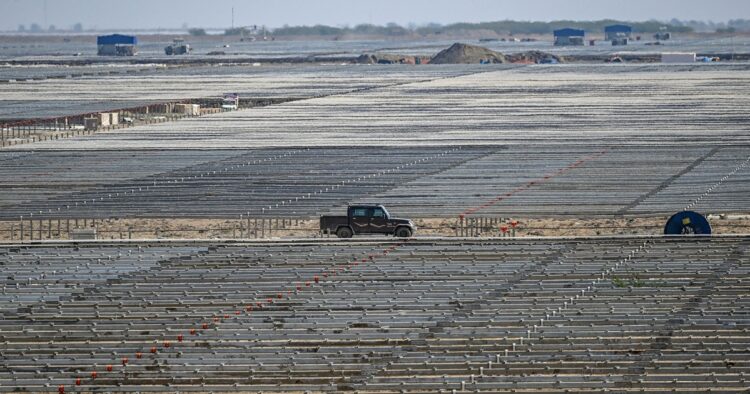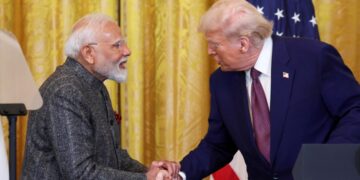In a groundbreaking initiative, Adani Green Energy Limited (AGEL), a subsidiary of the Adani Group, is spearheading the construction of the Khavda Renewable Energy Park in Gujarat, Bharat. This project, with an estimated cost of $20 billion, aims to become the world’s largest renewable energy park upon completion. Led by Sagar Adani, the nephew of Gautam Adani, AGEL is making strides in Bharat’s renewable energy sector, a pivotal step towards reducing pollution and meeting climate goals.
Spanning over 200 square miles in the barren salt deserts of western Bharat, the Khavda Renewable Energy Park will harness solar and wind energy on an unprecedented scale. Its sheer magnitude, five times the size of Paris and visible from space, underscores its significance as a global energy endeavor. Once operational, it is projected to generate enough electricity to power 16 million Indian homes, marking a substantial contribution to India’s energy transition.
India faces significant challenges in balancing its energy demands with environmental sustainability. Despite being the world’s third-largest energy consumer, India aims to shift towards renewable sources, targeting 50% fulfillment of its energy requirements from solar and wind power by 2030. AGEL’s ambitious goal to provide 9% of India’s non-fossil fuel electricity generating capacity underscores the urgency to transition to cleaner energy alternatives.
While the Khavda project signifies progress towards cleaner energy, concerns linger regarding the Adani Group’s extensive investments in fossil fuels. Critics argue that despite its green initiatives, the conglomerate’s involvement in coal mining, including the controversial Carmichael Coal Mine in Australia, contradicts its environmental commitments. Climate experts emphasize the imperative for prioritizing low-cost zero-emission technologies over further fossil fuel ventures.
In response to criticisms, Sagar Adani defends the Adani Group’s diversified approach, citing the necessity of meeting the energy needs of Bharat’s growing population. Acknowledging the aspirations of millions transitioning into middle and upper-income brackets, he stresses the importance of providing basic energy access while simultaneously investing in renewables. Adani highlights Bharat’s right to pursue its developmental goals, emphasizing the country’s substantial strides in renewable energy alongside coal utilization.
The Khavda Renewable Energy Park stands as a testament to Bharat’s commitment to sustainable development and climate action. As the world grapples with the urgent need for cleaner energy solutions, initiatives of this scale exemplify the transformative potential of renewable energy. Despite challenges and criticisms, AGEL’s endeavor underscores the pivotal role of private enterprises in driving Bharat towards a greener, more sustainable future.

















Comments